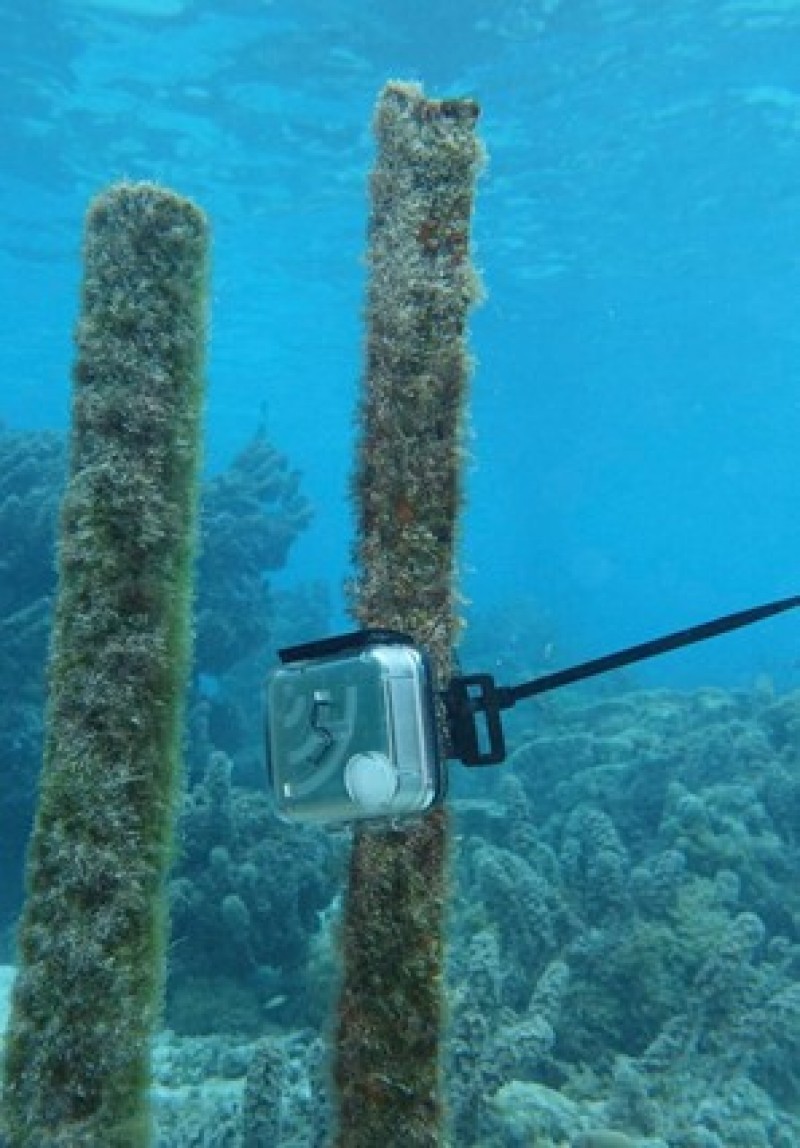Research at CRIOBE on Moorea, French Polynesia
Ben Williams
University of Exeter

In January 2021 I set off for a three month research trip to the Centre de Recherches Insulaires et Observatoire de l’Environnement (CRIOBE) on Moorea, French Polynesia. With the support of the Challenger Society for Marine Science, I was able to lead two key pieces of research here. These were primarily focused on the passive acoustic monitoring of coral reefs. This new monitoring tool operates around the concept that we can learn about a habitat by studying the full array of natural sounds present within the area, known as the ‘soundscape’.
The first of these projects was centred around an exciting new piece of disruptive recording technology, the AudioMoth. Equipment costs are typically a real barrier to marine soundscape ecologists. However, these new recorders are able to deliver many of the features our research grade hydrophones offer for just a 30th of the cost. Colleagues and I therefore set about working with the developers of these devices, Open Acoustics, to adapt these terrestrial recorders for the marine environment. I am fortunate enough to be trialling prototypes of these for one of the first times in the marine setting whilst I collect recordings on the coral reefs around Moorea. This provided essential data we needed to formally test these recorders against existing technology. With the hard work of colleagues back home including Tim Gordon, Lucille Chapuis and others, we’ve been able to prepare this work for submission for publication. We hope this technology will offer marine practitioners a more accessible means by which to monitor underwater soundscapes.
The second project I’ve been working on has been led by Dr Suzanne Mills and Dr Ricardo Beldade who are investigating the impact of artificial light pollution on tropical reef fish. This has proved an excellent opportunity for me to piggy back on their experiment and once again use these new AudioMoth recorders to look at the impacts of this pollutant on the soundscape. This project has given me the opportunity to further advance my field and bioacoustic expertise. I’ve also been able to learn new skills such as working on a stressor based experiment, in the form of light pollution in our case, and how to cope with being at the constant mercy of fish spawning cycles which decide the timing of our every move!
Looking to the future, I’m excited to see what impact our work, demonstrating the utility of the new AudioMoth recorders, can have on the field of marine passive acoustics. I’ll also be able to carry over much the data I have collected to my PhD which I will be commencing later this year at UCL as a member of the Biome Health Project.
Ben is completing his Masters by Research at the University of Exeter under the supervision of Professor Steve Simpson. Ben’s work primarily focuses on studying coral reef soundscapes with novel recording technology and how we can improve the analysis of this data using machine learning.
Latest News
Royal Society Publishing Photography Competition 2025
Please see a message from the Royal Society below:
We are delighted to announce that the 2025 Competition is now open for entries until 15 August for a chance to win £1000! The competition celebrates the power of photography in conveying the wonder of science happening all around us and photographs can be submitted in the categories of: Astronomy, Behaviour, Earth Science and Climatology, Ecology and Environmental Science, and Microimaging.
The competition is free to enter and open to anyone studying or working in science at graduate level or above. Category winners will receive a one-year membership to the Royal Photographic Society and the overall winner will receive a grand prize of £1,000. Find out more: https://bit.ly/RSPphotocomp
October 2025 MEDIN Workshop: Marine Data Management, Governance and the MEDIN toolset
The Marine Environmental Data and Information Network (MEDIN) are pleased to announce that registration is now open for the next occurrence of our popular free online training workshop: ‘Marine Data Management, Governance and the MEDIN toolset’ on the 13th – 17th October 2025 on OceanTeacher Global Academy.
Marine Data Management, Governance and the MEDIN toolset
The Marine Environmental Data and Information Network (MEDIN) and OceanWise are delighted to invite you to attend our popular free online training workshop: ‘Marine Data Management, Governance and the MEDIN toolset’ on the 19th – 23rd of May 2025.
